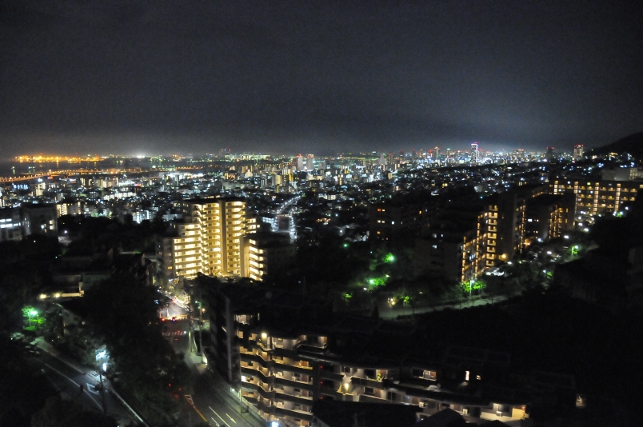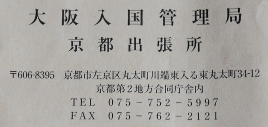 Today I crossed another thing off my list: opening a bank account. Once more, the experience was pleasant as everything was rather organised, except for a tiny little hiccup (which was entirely my fault), but the clerk managed it bravely (and in a rather un-Japanese fashion).
Today I crossed another thing off my list: opening a bank account. Once more, the experience was pleasant as everything was rather organised, except for a tiny little hiccup (which was entirely my fault), but the clerk managed it bravely (and in a rather un-Japanese fashion).
I opened an account with Shinsei bank, as I have heard that they are the most foreigner-friendly bank, and also because you can withdraw money from essentially every ATM in the country free of charge. It took me a while to find their branch on Shijo street, and when I entered, all I could see were the ATMs. I looked confused, so the security guard that was there (every branch of every bank seems to have at least one) approached me, and when I said I wanted to open an account, he pointed up the stairs to the office. Interestingly, on the ground floor, there were only three ATMs and a drugstore playing noisy music.
Anyway, once upstairs, I presented my brand new zairyu card and asked to open an account. The clerk pointed me to a computer and helped me enter all my information: Name in Katakana and roman alphabet, address, occupation,…
The little hiccup occurred when we came to the field “phone number”. I don’t have a phone, neither mobile nor landline and I tried to explain that to the clerk. She answered essentially “no phone, no account”, which I found odd (and I am seriously wondering if I could get a phone without a bank account, by the way) and tried to convince her that a phone number is not necessary, after all, they could send me an email… Nope, she insisted, no phone – no account. I relented and asked if I could give her the number of my landlady and she said if the landlady would be okay to receive my phone calls from the bank, that would be all right with them. Unfortunately, I did not bring the piece of paper where I noted down my landlady’s phone number, and I don’t know it by heart as we usually communicate per email… So, I asked whether I can just enter any number, and if it was okay to change the phone number later once I knew the correct one. And – I was already prepared to leave and start afresh on Monday – the clerk said yes to my scheme! Honestly, I did not expect that, kudos to that clerk!
After filling in the online form and checking the Katakana over and over again (I have a difficult last name, at least for Asians, and I used a way of transcribing it so that the pronunciation will be correct), I had to wait a few minutes for another clerk to take over. I had to sign the account application form, where instead of my signature I chose to use a hanko, a Japanese seal. I know that this means I’ll have to bring the hanko every time I go to the bank, but as I do most of my stuff with internet banking anyway, I hope it won’t be too much hassle as long as I’m not turning senile and keep forgetting the thing…
After that, we were almost finished. I was immediately issued with a bank card (I could choose between some 10 colours and went for the black although I have to admit the bright orange one had something too…), received a comparatively small pile of extra paperwork, and was promised that everything I’d need for internet banking would be sent to my address in a registered letter within 10 days. After asking about transfer limits, and being instructed about how to register for a credit card, we were finished and I left very happily. Interestingly, I was never asked for an initial deposit. The whole procedure (including the fight about the telephone number and answering my questions requiring two clerks) took maybe 30 minutes and I can start banking right away. Once I have any money, that is…











